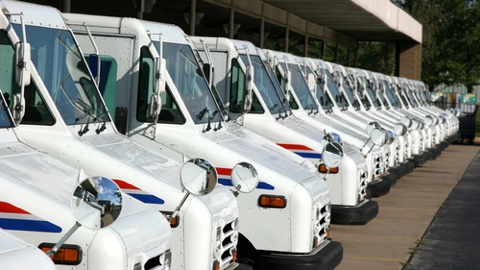
The U.S. Postal Service, which has suffered chronic losses year after year, is attempting to re-define and re-purpose itself in the digital age.
A recent report from USPS Office of Inspector General, identified five smart city pilot projects. Looking to take advantage of its existing facilities and fleets, USPS has proposed the use of sensors gather data from around the city. It’s expected that these pilot projects would require little commitment in investment and operations.
In Pittsburgh, USPS is working with researchers at Carnegie Mellon University who have created software to study road conditions and identify potholes and cracks. Structural safety of bridges across the US is a major concern. The USPS proposes installing their vehicles with accelerometers, instruments that detect, monitor, and report vibration levels.
The Innovation Office of Montgomery County, Maryland is studying the USPS’ proposal for a system using moisture sensors attached to underground water pipes to communicate leaks to county utility services. When driving by a sensor, a USPS truck would have the ability to relay leakage alerts.
Four cities in New York are working with the USPS to design a blight tracking system. Delivery workers would be provided with a mobile app to report disrepair, abandoned buildings, etc.
The fifth pilot project, in Portland, Oregon, will install air quality sensors in USPS vehicles. This would greatly augment Portland’s two existing, stationary monitoring stations.


